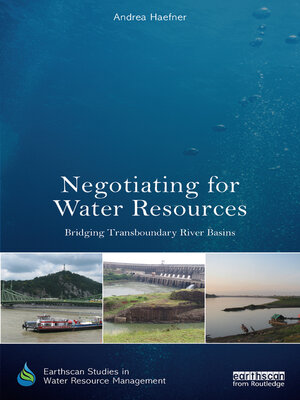Negotiating for Water Resources
ebook ∣ Bridging Transboundary River Basins · Earthscan Studies in Water Resource Management
By Andrea Haefner

Sign up to save your library
With an OverDrive account, you can save your favorite libraries for at-a-glance information about availability. Find out more about OverDrive accounts.
Find this title in Libby, the library reading app by OverDrive.



Search for a digital library with this title
Title found at these libraries:
| Library Name | Distance |
|---|---|
| Loading... |
Over 90 per cent of the world population lives in countries that share a river basin with others. Freshwater resources are scarce and different nations, actors and users compete for limited resources in transboundary river basins; often conflicting with each other. Water is a resource with no substitute: it cannot be secured in sufficiently large quantities through long-distance trade deals; and, due to the interconnectivity of the hydrological system, the actions of one country in its water management have a direct bearing on the interests of neighbouring countries. For instance, in the Mekong River Basin, current hydropower and navigation developments in certain countries impact on traditional sources of income such as fisheries, and rice production in others. These kinds of changes in water use have given rise to conflict between countries in that region and others, but have also led, in some cases, to greater cooperation. The past few decades have seen a number of new agreements about the sharing of river resources and cooperation between riparian states.
Negotiating for Water Resources explores the drivers of conflict and cooperation between states in transnational river basins. Drawing on extensive fieldwork and interviews on the Mekong, Danube and La Plata River Basins, the book provides a three level analysis across three case studies, including the regional framework (EU, ASEAN and Mercosur), the River Basin Organisations (ICPDR, MRC and CIC) and the micro-level. The key question of the book is: To what extent do power asymmetries prevent or inhibit cooperation between riparian states over water resources? This is linked to the question of how institutions contribute to mitigate competition for natural resources and how states interact in a multilateral arena. Overall, the book argues that cooperation in transboundary river basins is possible even where there are asymmetric power relations, challenging realist assumptions about competition and conflict over resources.







